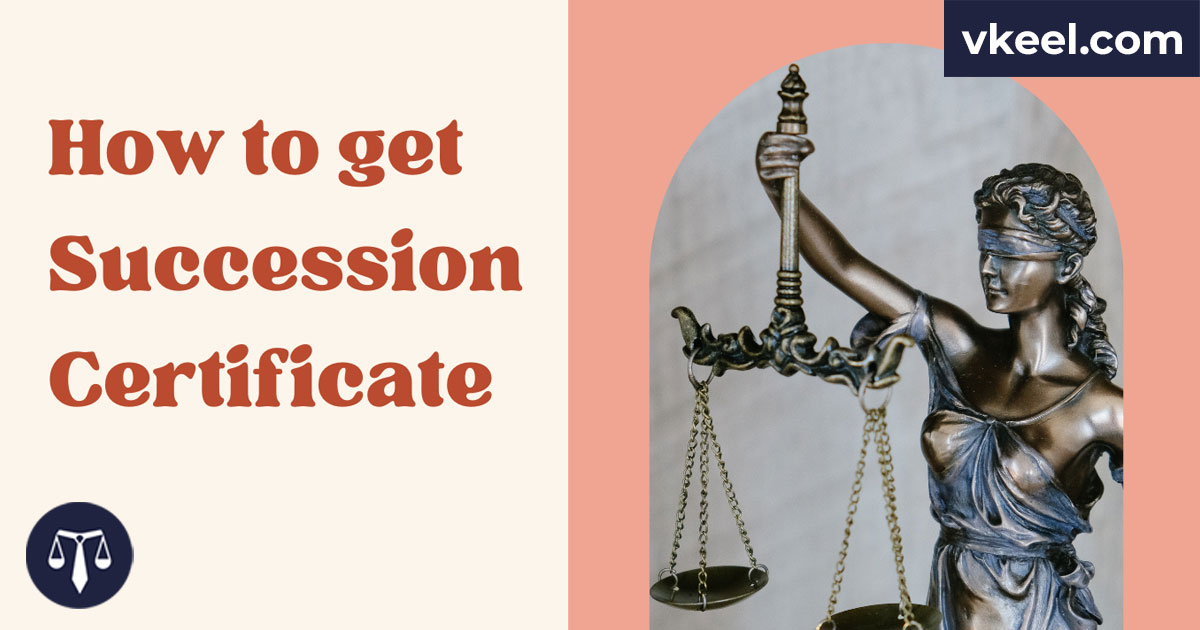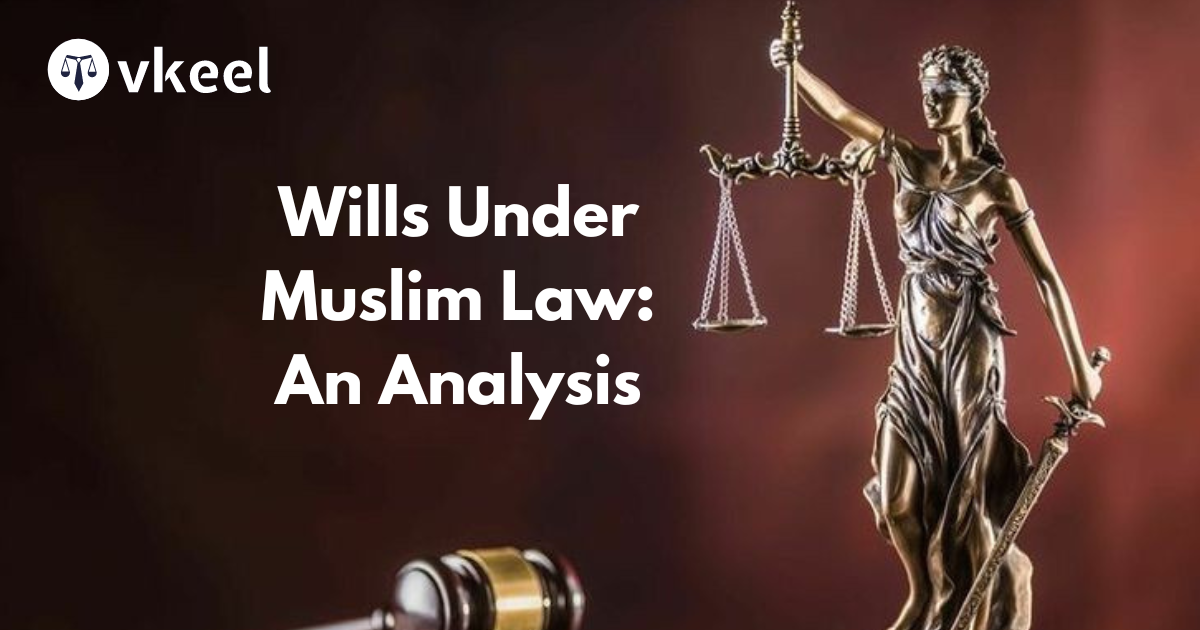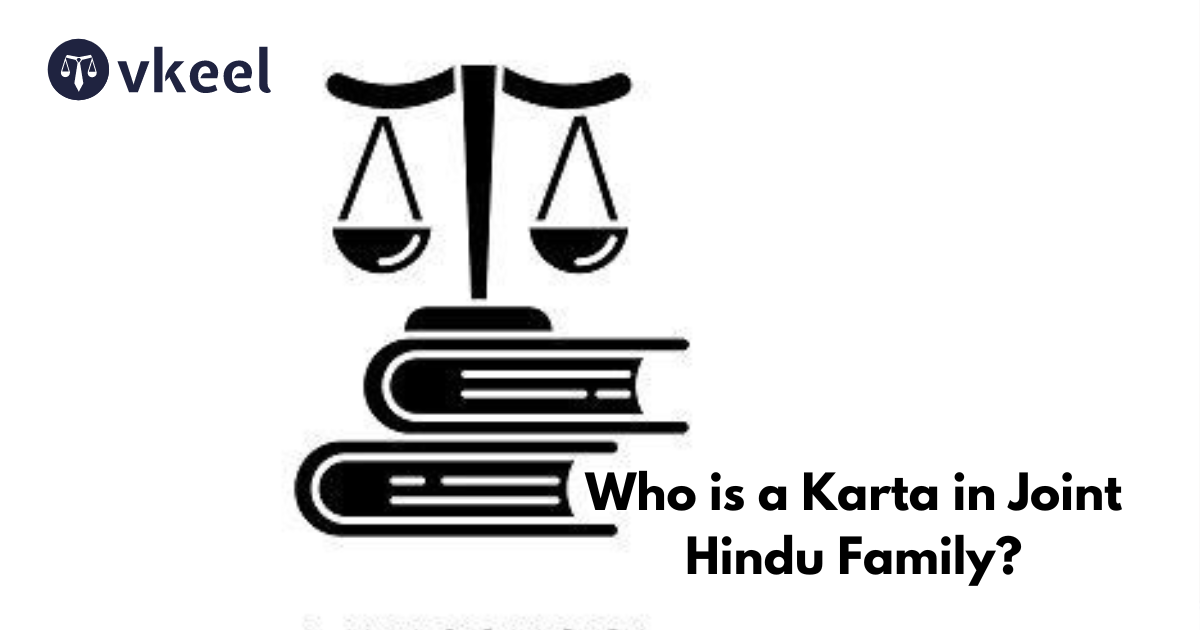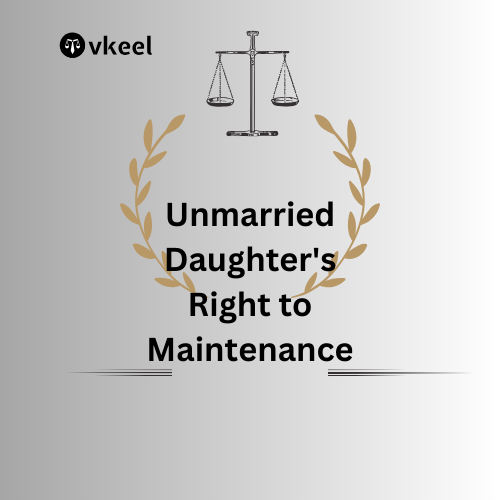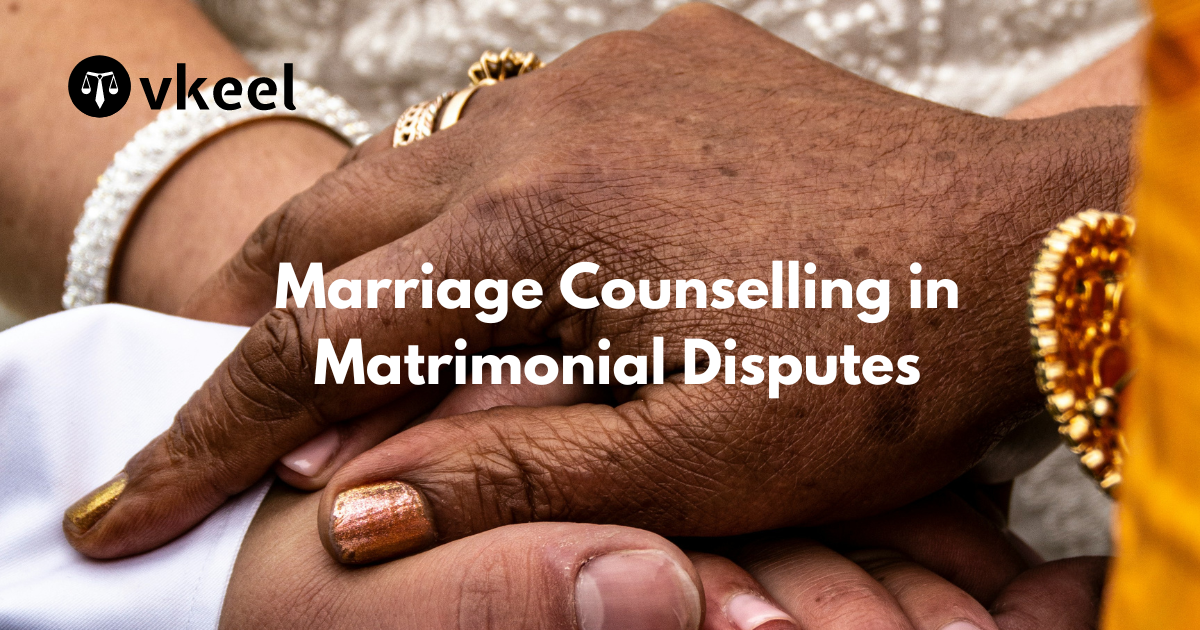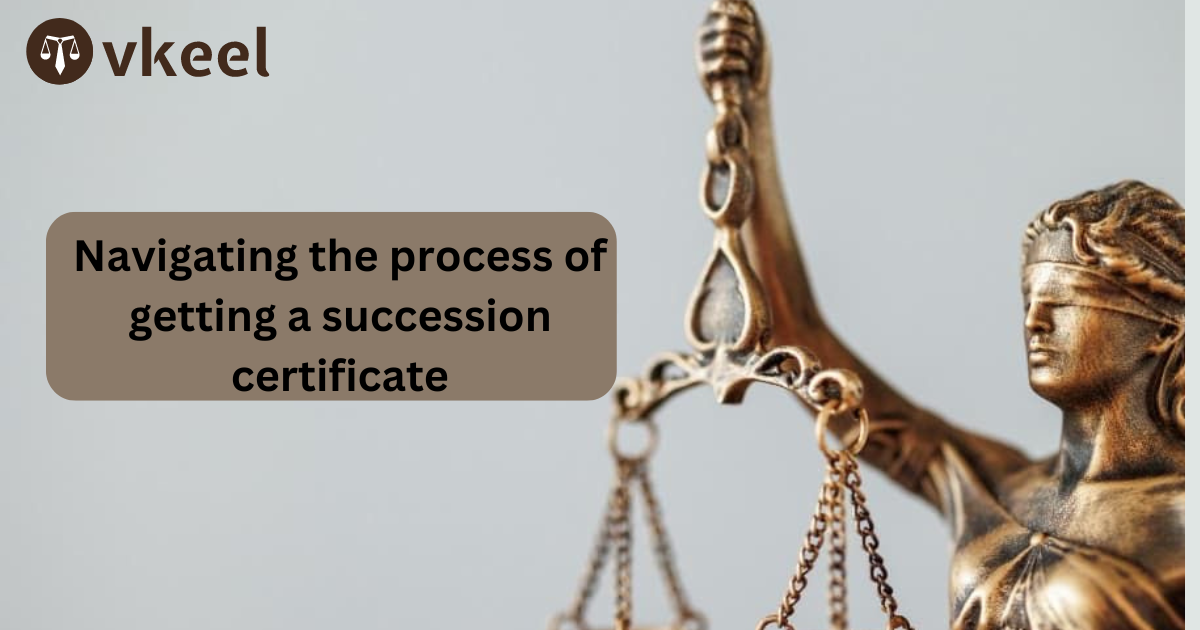How to get Succession Certificate?
By Vkeel Team
Table of Contents
- Introduction
- What is a Succession Certificate?
- How to File an Application for a Succession Certificate?
- What is the Time Frame for Obtaining a Succession Certificate?
- What Documents are Required to Obtain a Succession Certificate?
- How to Use a Succession Certificate to Transfer Assets?
- How to Resolve Disputes Regarding Succession Certificates?
- What are the Benefits of Having a Succession Certificate?
- Effect of the Succession Certificate
- Why do you need a Lawyer for Obtaining a Succession Certificate?
- Conclusion
Introduction
A Succession Certificate is a legal document issued by a court of law that certifies the legal heir of a deceased person. It is an important document that is required to transfer the assets of the deceased person to the legal heir. The process of obtaining a Succession Certificate can be complicated and time-consuming. This article will provide an overview of the process of obtaining a Succession Certificate and the documents required for the same.
What is a Succession Certificate?
A Succession Certificate is a legal document issued by a court of law that confirms the legal right of a person to inherit the property of a deceased person. It is issued to the legal heirs of the deceased person and is required to transfer the property to the rightful heirs. The Succession Certificate is issued after the court has determined the legal heirs of the deceased person and has verified the documents submitted by them.
The Succession Certificate is an important document as it serves as proof of the legal right of the heirs to the property of the deceased person. It is also required for the transfer of the property to the rightful heirs and for the settlement of any debts or liabilities of the deceased person.
How to File an Application for a Succession Certificate?
In order to obtain a Succession Certificate, an application must be filed in the court of law. The following steps should be followed to file an application for a Succession Certificate:
1. Obtain the application form: The application form for a Succession Certificate can be obtained from the court of law or from the official website of the court.
2. Fill in the application form: The application form must be filled in with the required details such as the name of the deceased person, the name of the legal heir, the relationship between the deceased person and the legal heir, and the details of the assets and liabilities of the deceased person.
3. Attach the required documents: The application form must be accompanied by the required documents such as the death certificate of the deceased person, the identity proof of the legal heir, and the proof of relationship between the deceased person and the legal heir.
4. Submit the application form: The application form along with the required documents must be submitted to the court of law.
5. Pay the fee: The court may charge a fee for processing the application. The fee must be paid at the time of submitting the application form.
Once the application is submitted, the court will process the application and issue the Succession Certificate to the legal heir.
What is the Time Frame for Obtaining a Succession Certificate?
The time frame for obtaining a Succession Certificate varies depending on the jurisdiction. Generally, the process can take anywhere from a few weeks to several months. The length of time depends on the complexity of the estate, the availability of documents, and the court’s backlog.
In most cases, the process begins with the filing of an application with the court. The application must include a copy of the deceased’s death certificate, a list of the deceased’s assets and liabilities, and a list of the deceased’s heirs. The court will then review the application and determine whether the applicant is entitled to a Succession Certificate.
Once the court has approved the application, the applicant must submit a bond to the court. This bond is a guarantee that the applicant will pay any debts or taxes owed by the deceased. The court will then issue a Succession Certificate, which is valid for a period of six months.
The Succession Certificate is an important document that allows the deceased’s heirs to access the deceased’s assets and liabilities. It is important to note that the Succession Certificate does not replace a will or other estate planning documents. It is simply a document that allows the deceased’s heirs to access the assets and liabilities of the deceased.
What Documents are Required to Obtain a Succession Certificate?
In order to obtain a Succession Certificate, certain documents are required. These documents include:
1. An application form for the Succession Certificate, which must be filled out and signed by the applicant.
2. A copy of the death certificate of the deceased.
3. A copy of the will of the deceased, if any.
4. A copy of the probate or letters of administration, if any.
5. A copy of the identity proof of the applicant.
6. A copy of the address proof of the applicant.
7. A copy of the identity proof of the deceased.
8. A copy of the address proof of the deceased.
9. A copy of the marriage certificate of the deceased, if any.
10. A copy of the birth certificate of the deceased, if any.
11. A copy of the PAN card of the deceased, if any.
12. A copy of the bank account details of the deceased, if any.
13. A copy of the property documents of the deceased, if any.
14. A copy of the insurance policy of the deceased, if any.
15. A copy of the nomination form of the deceased, if any.
16. A copy of the legal heir certificate, if any.
17. Any other documents that may be required by the court.
These documents must be submitted to the court in order to obtain a Succession Certificate. The court will then review the documents and decide whether to issue the Succession Certificate or not.
How to Use a Succession Certificate to Transfer Assets?
Once the succession certificate is issued, the heir can use it to transfer the assets of the deceased. The heir must first contact the relevant financial institutions and provide them with the succession certificate. The financial institutions will then transfer the assets to the heir in accordance with the succession certificate.
In some cases, the heir may also need to provide additional documents such as a death certificate or a will. The financial institutions may also require the heir to provide proof of identity and other documents to verify the heir’s identity.
It is important to note that the succession certificate is only valid for a certain period of time. After the expiration of the certificate, the heir will need to apply for a new certificate in order to transfer the assets.
In conclusion, a succession certificate is an important document that is required to transfer the assets of a deceased person to the rightful heir. The process of obtaining a succession certificate involves filing an application in the court of law and providing the relevant financial institutions with the certificate. The financial institutions will then transfer the assets to the heir in accordance with the succession certificate.
How to Resolve Disputes Regarding Succession Certificates?
Succession certificates are documents issued by the court to recognize the legal rights of an individual to inherit property or assets from a deceased person. Disputes regarding succession certificates can arise due to a variety of reasons, such as conflicting claims to the same property or assets, or a disagreement over the validity of the succession certificate.
In order to resolve disputes regarding succession certificates, it is important to understand the legal process involved. The first step is to file a petition in the court of law, which will be heard by a judge. The petitioner must provide evidence to support their claim, such as documents, witness statements, and other relevant information. The court will then review the evidence and make a decision based on the merits of the case.
If the court finds that the succession certificate is valid, it will issue an order granting the petitioner the right to inherit the property or assets. If the court finds that the succession certificate is invalid, it will issue an order denying the petitioner the right to inherit the property or assets.
In some cases, the court may also order mediation or arbitration to resolve the dispute. Mediation is a process in which a neutral third party helps the parties involved in the dispute to reach an agreement. Arbitration is a process in which a neutral third party hears both sides of the dispute and makes a decision based on the evidence presented.
It is important to note that the court’s decision is final and binding. Therefore, it is important to seek legal advice before filing a petition in court. An experienced lawyer can help you understand the legal process and ensure that your rights are protected.
What are the Benefits of Having a Succession Certificate?
The primary benefit of having a succession certificate is that it provides legal proof of the heir’s right to the property. Without a succession certificate, the heir may not be able to claim the property or may face legal challenges from other claimants. The certificate also serves as a record of the transfer of the property and can be used to prove ownership in the future.
Another benefit of having a succession certificate is that it can help to avoid disputes between family members. The certificate serves as a legal document that confirms the heir’s right to the property and can help to prevent any disputes that may arise between family members.
Finally, having a succession certificate can help to simplify the process of transferring the property. The certificate serves as a legal document that can be used to transfer the property quickly and easily. This can help to save time and money, as well as reduce the stress associated with transferring the property.
In conclusion, having a succession certificate is beneficial for a number of reasons. It provides legal proof of the heir’s right to the property, can help to avoid disputes between family members, and can simplify the process of transferring the property.
Effect of the Succession Certificate
The succession certificate is issued by the court after considering the claims of the heirs and verifying the legal documents. The court also considers the evidence presented by the claimants and the legal documents submitted by them.
Once the succession certificate is issued, it is binding on all the parties involved in the succession process. It is also binding on the government authorities and other third parties. The succession certificate is a legal document that is recognized by all the government authorities and other third parties.
The succession certificate is also required to obtain the necessary documents from the government authorities such as the death certificate, the probate certificate, and the succession deed. It is also required to obtain the necessary documents from the banks and other financial institutions.
Why do you need a Lawyer for Obtaining a Succession Certificate?
A lawyer is essential for obtaining a Succession Certificate as the process of obtaining the certificate is complex and involves a lot of legal formalities. The lawyer can help in filing the application for the certificate, preparing the documents required for the application, and representing the legal heir in court. The lawyer can also provide legal advice and guidance to the legal heir throughout the process.
The lawyer can also help in obtaining the necessary documents such as the death certificate, will, and other documents that are required for the application. The lawyer can also help in obtaining the necessary affidavits from the witnesses and other documents that are required for the application.
The lawyer can also help in preparing the legal documents such as the application for the Succession Certificate, the affidavit of the legal heir, and other documents that are required for the application. The lawyer can also help in filing the application in the court and representing the legal heir in court.
In conclusion, a lawyer is essential for obtaining a Succession Certificate as the process of obtaining the certificate is complex and involves a lot of legal formalities. The lawyer can help in filing the application, preparing the documents required for the application, and representing the legal heir in court. The lawyer can also provide legal advice and guidance to the legal heir throughout the process.
Conclusion
In conclusion, getting a Succession Certificate is a relatively straightforward process that requires the completion of a few simple steps. It is important to ensure that all the necessary documents are in order and that the application is filled out correctly. Additionally, it is important to be aware of the applicable laws and regulations in the jurisdiction in which the Succession Certificate is being sought. Following these steps will help ensure that the process of obtaining a Succession Certificate is as smooth and efficient as possible.
Disclaimer:
The information provided in the article is for general informational purposes only, and is not intended to constitute legal advice or to be relied upon as a substitute for legal advice. Furthermore, any information contained in the article is not guaranteed to be current, complete or accurate. If you require legal advice or representation, you should contact an attorney or law firm directly. We are not responsible for any damages resulting from any reliance on the content of this website.

